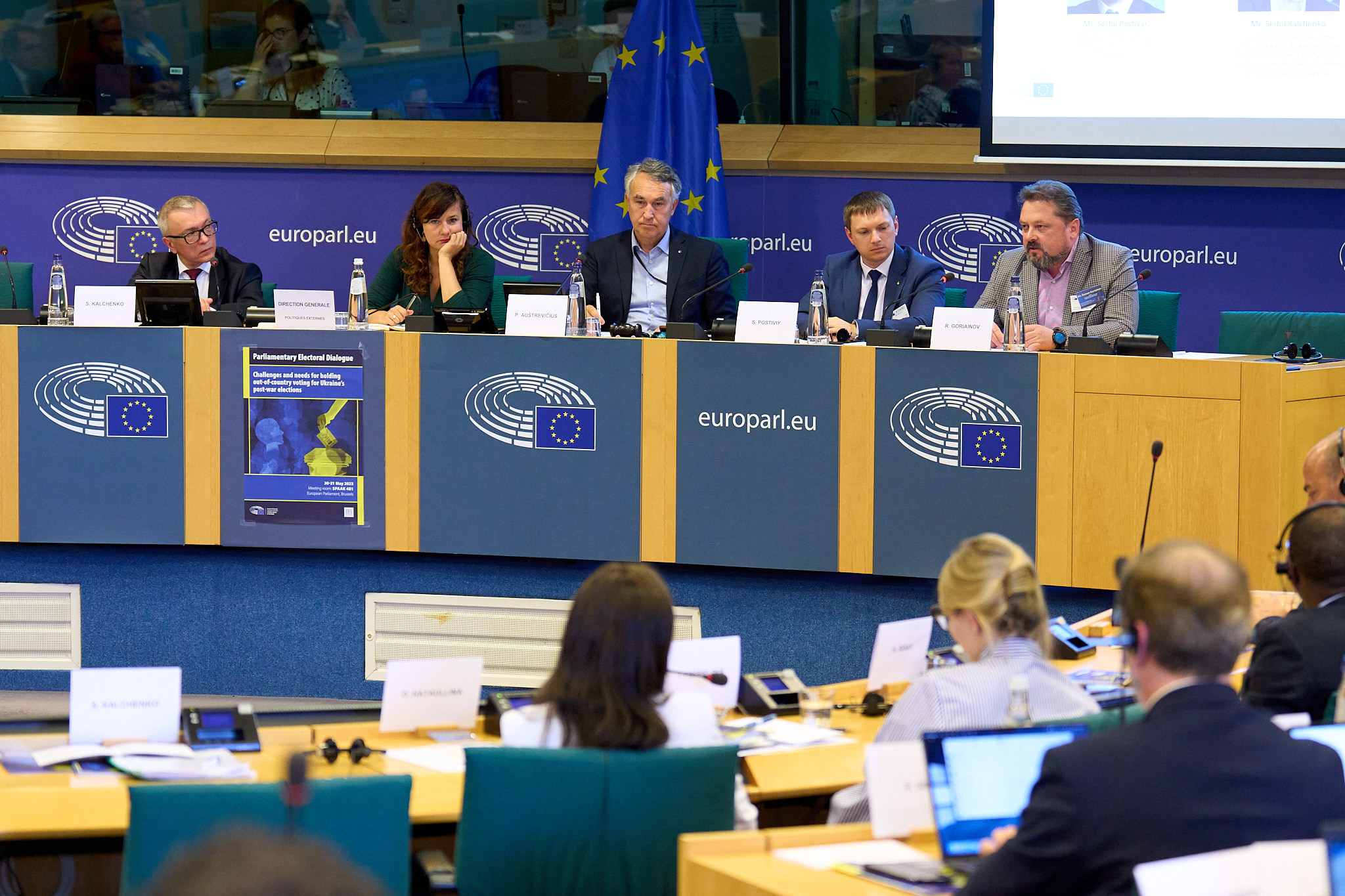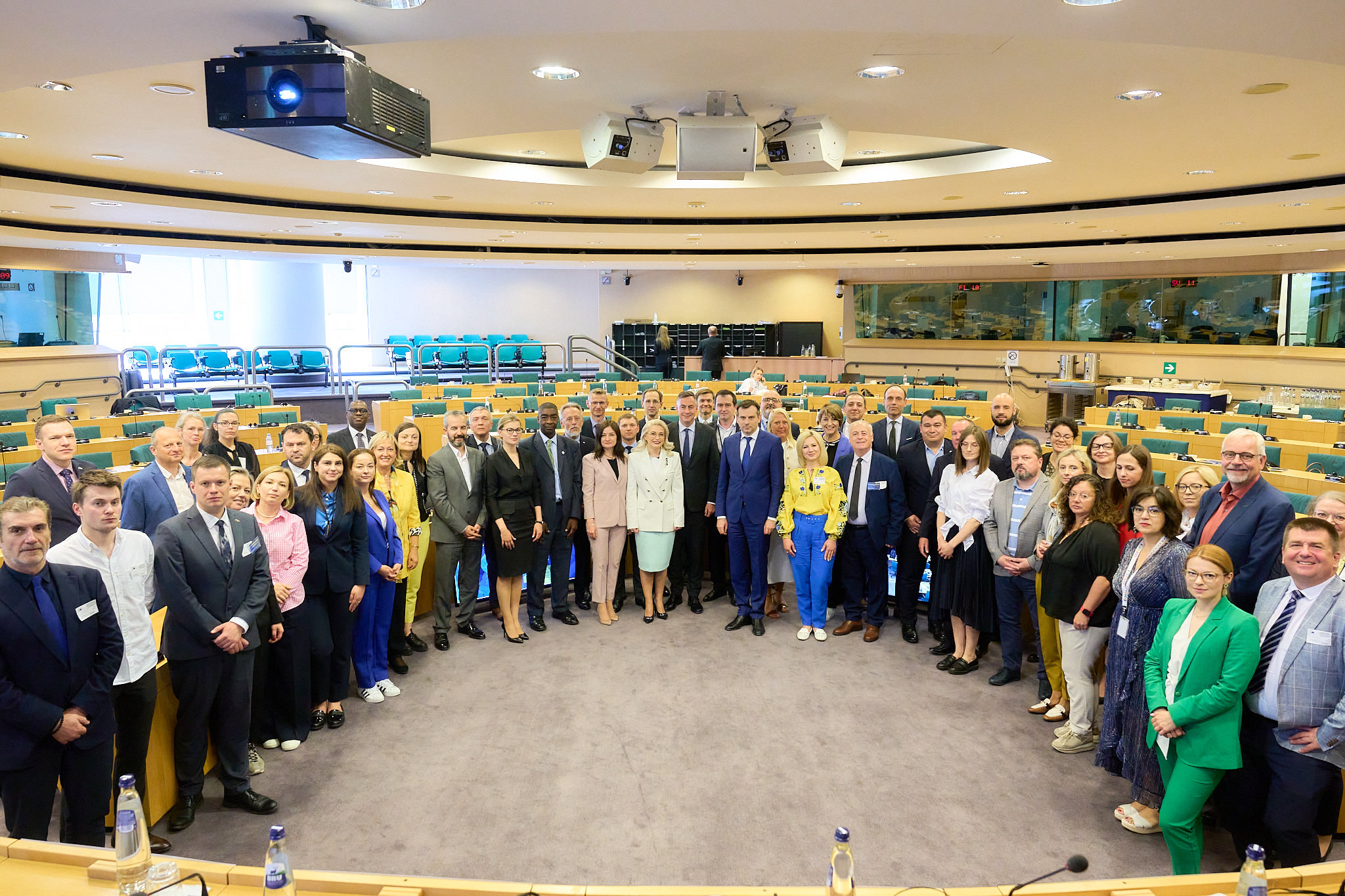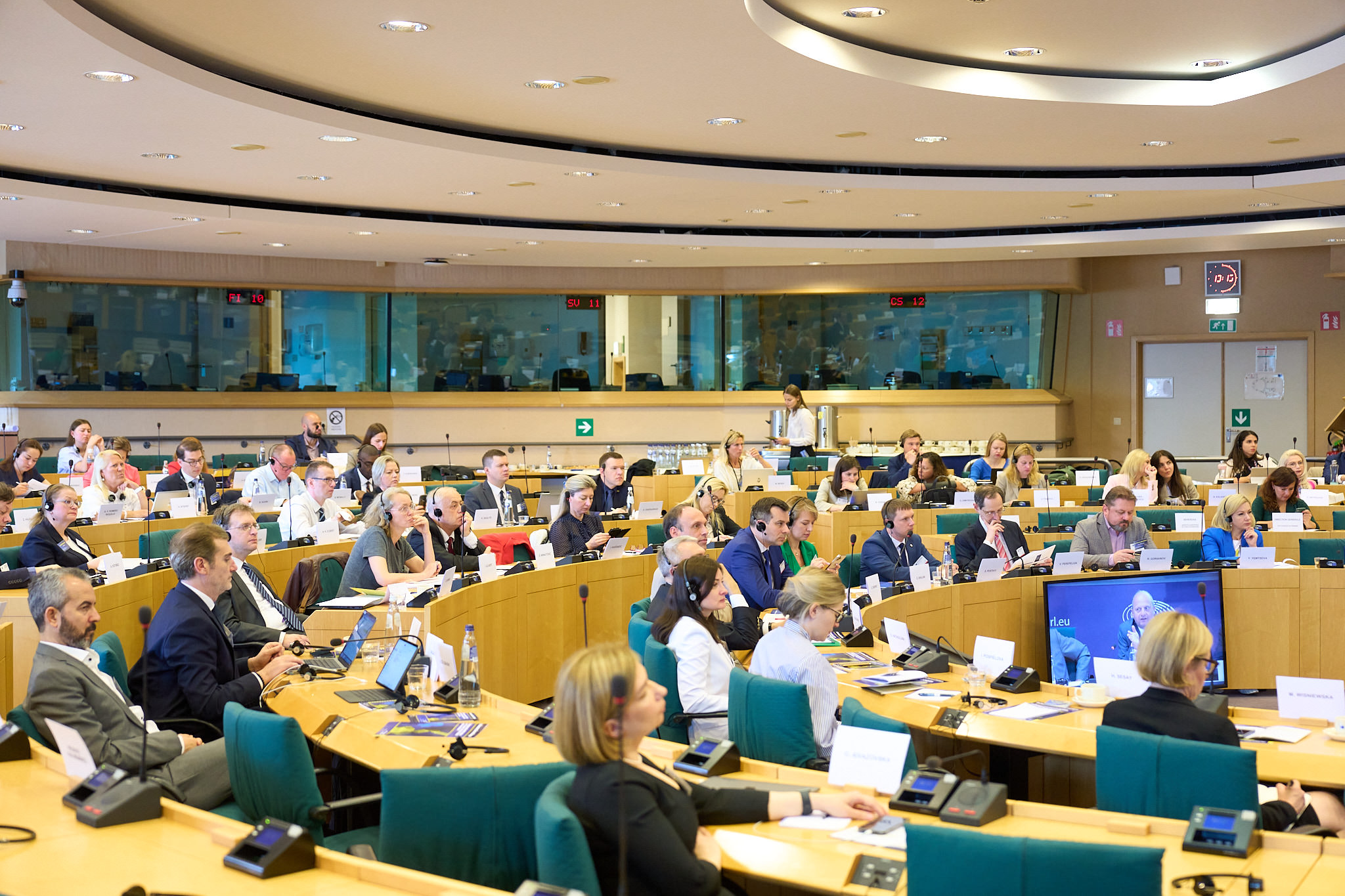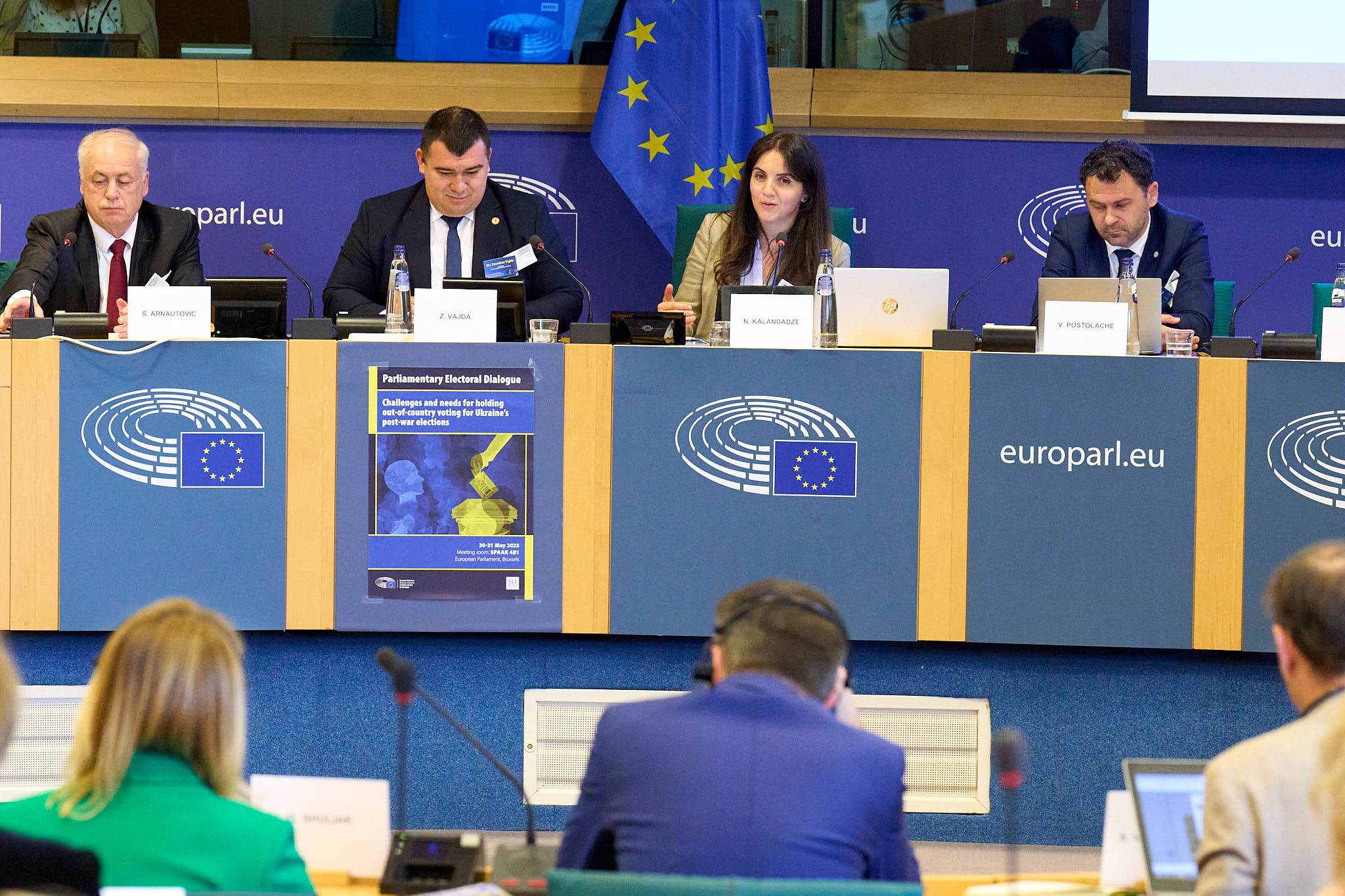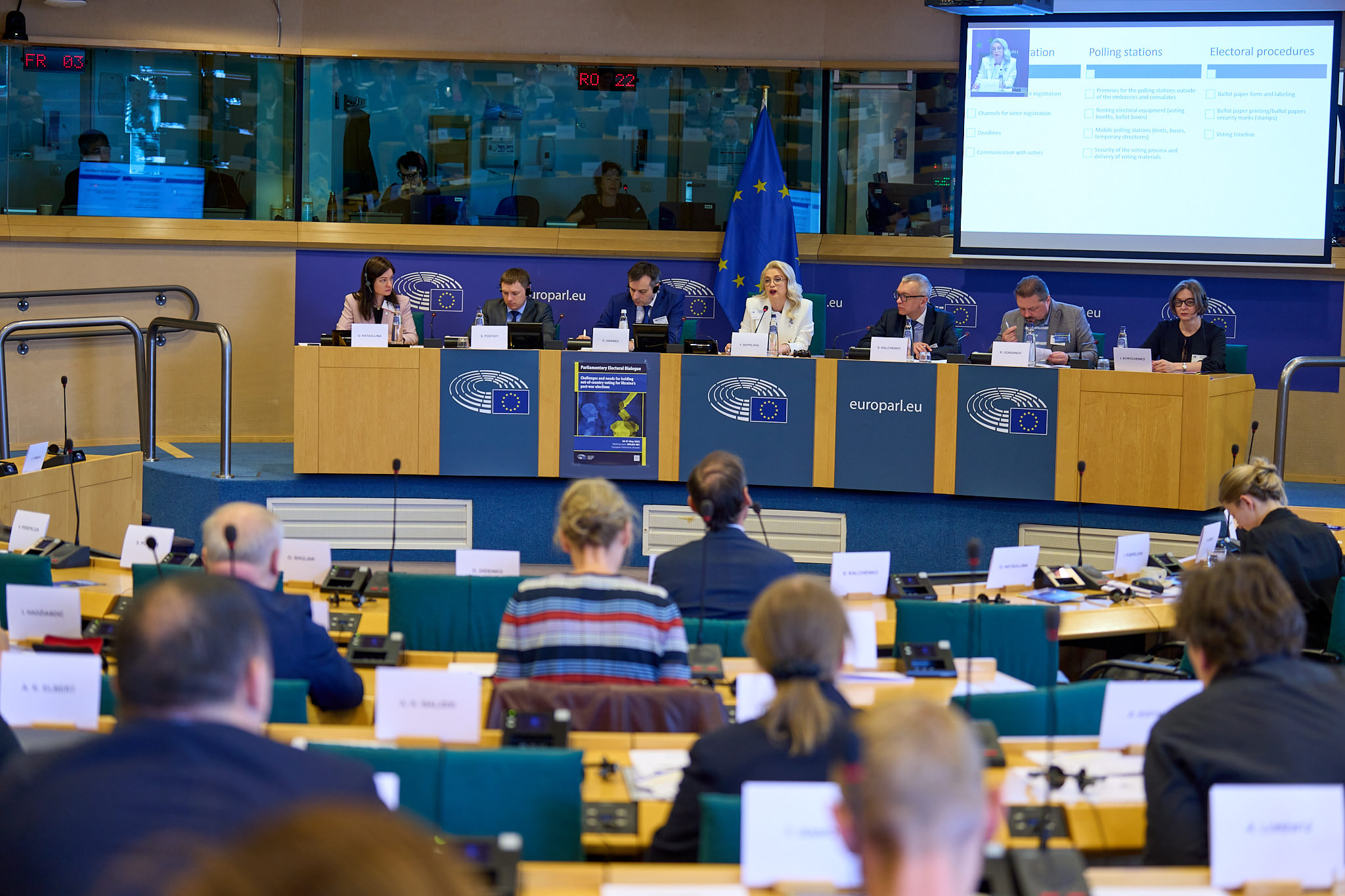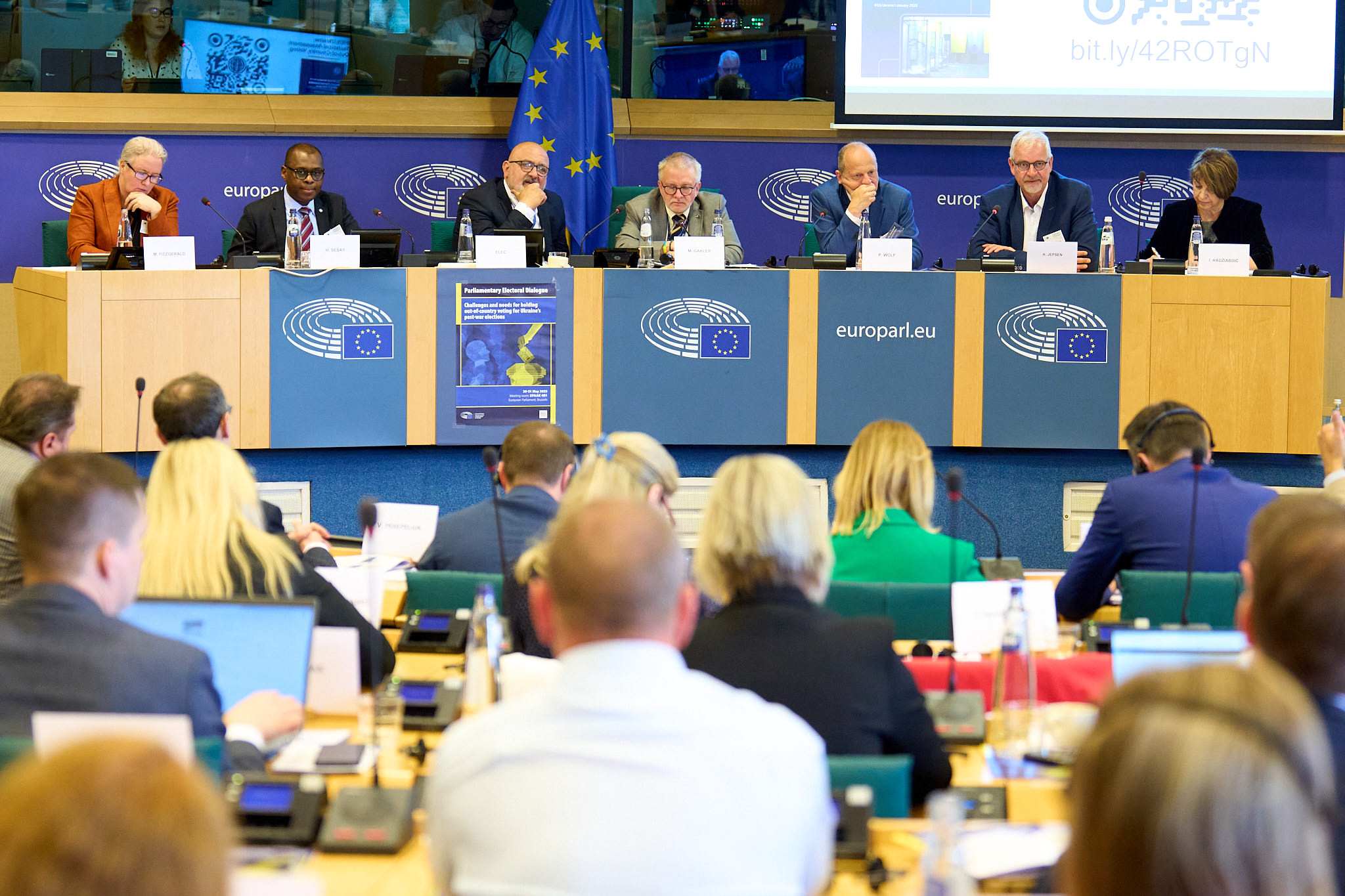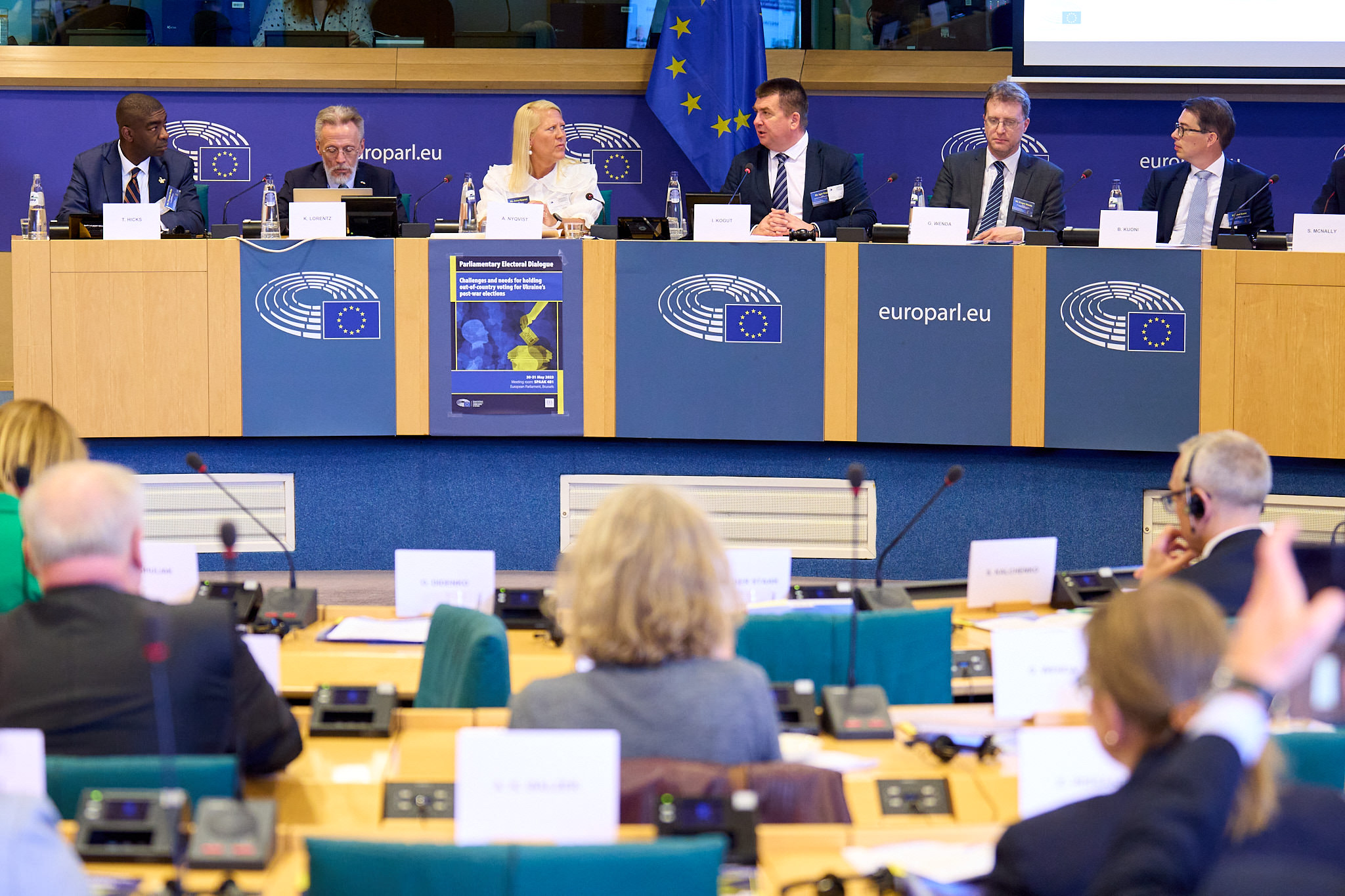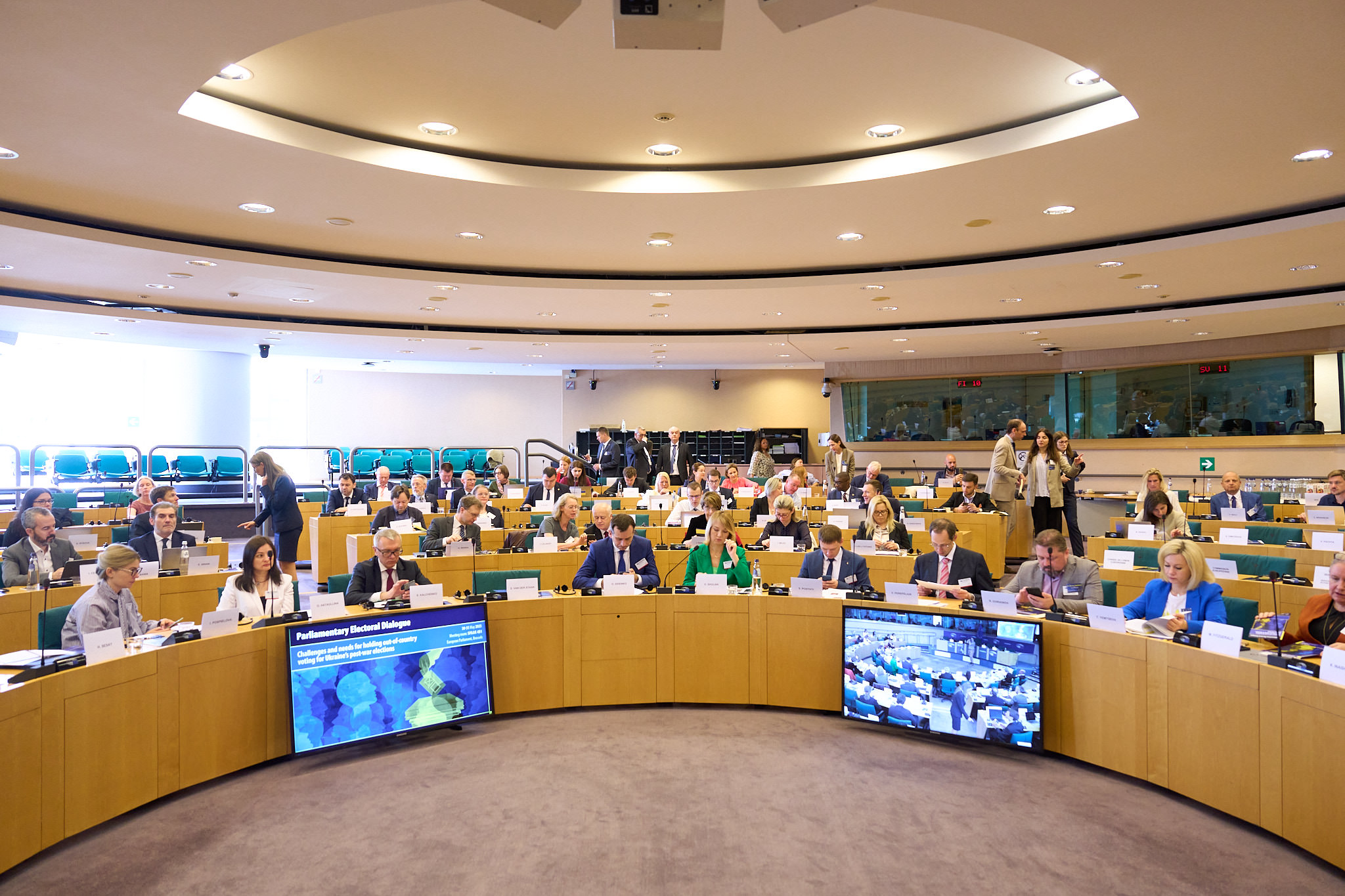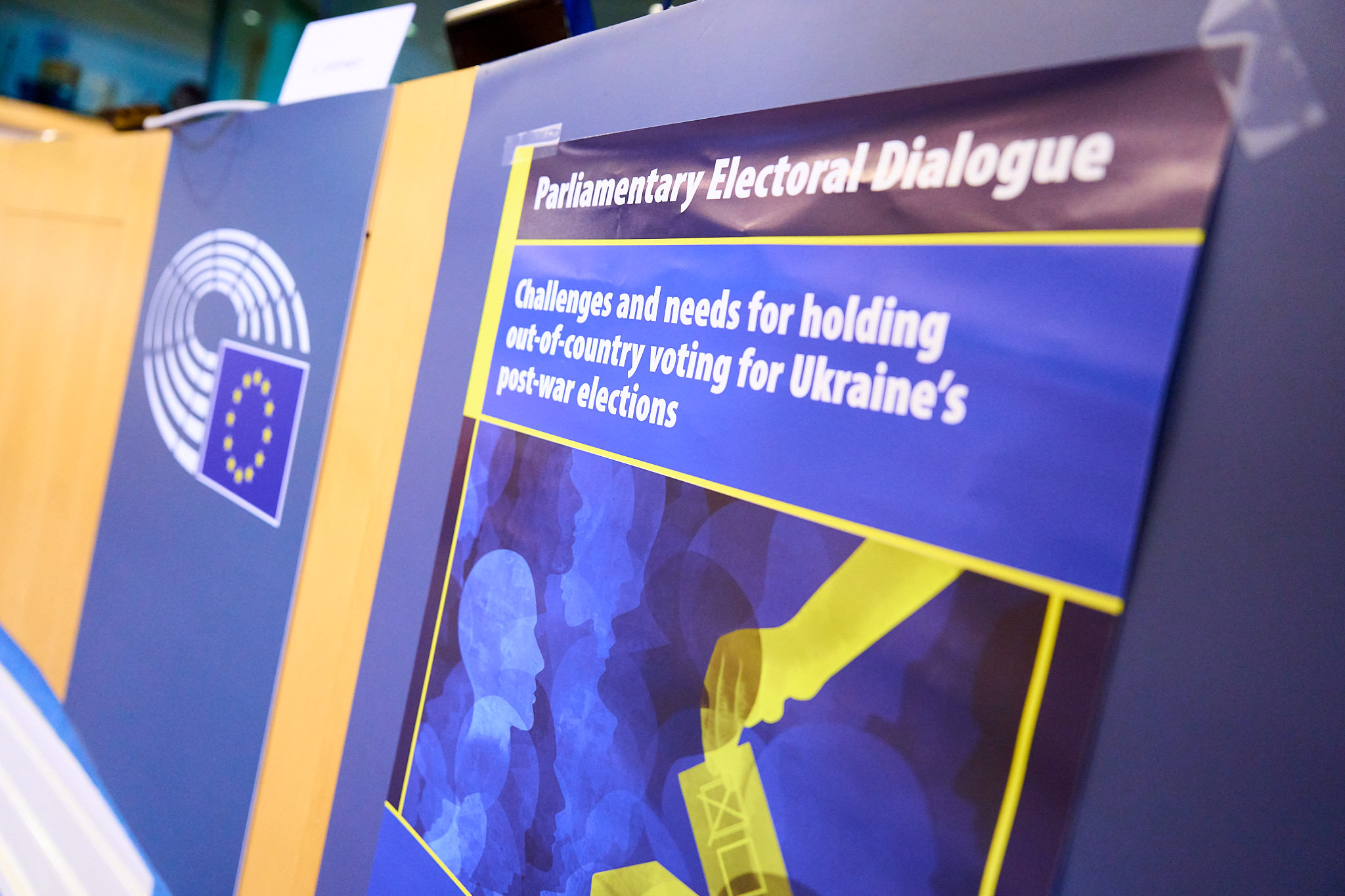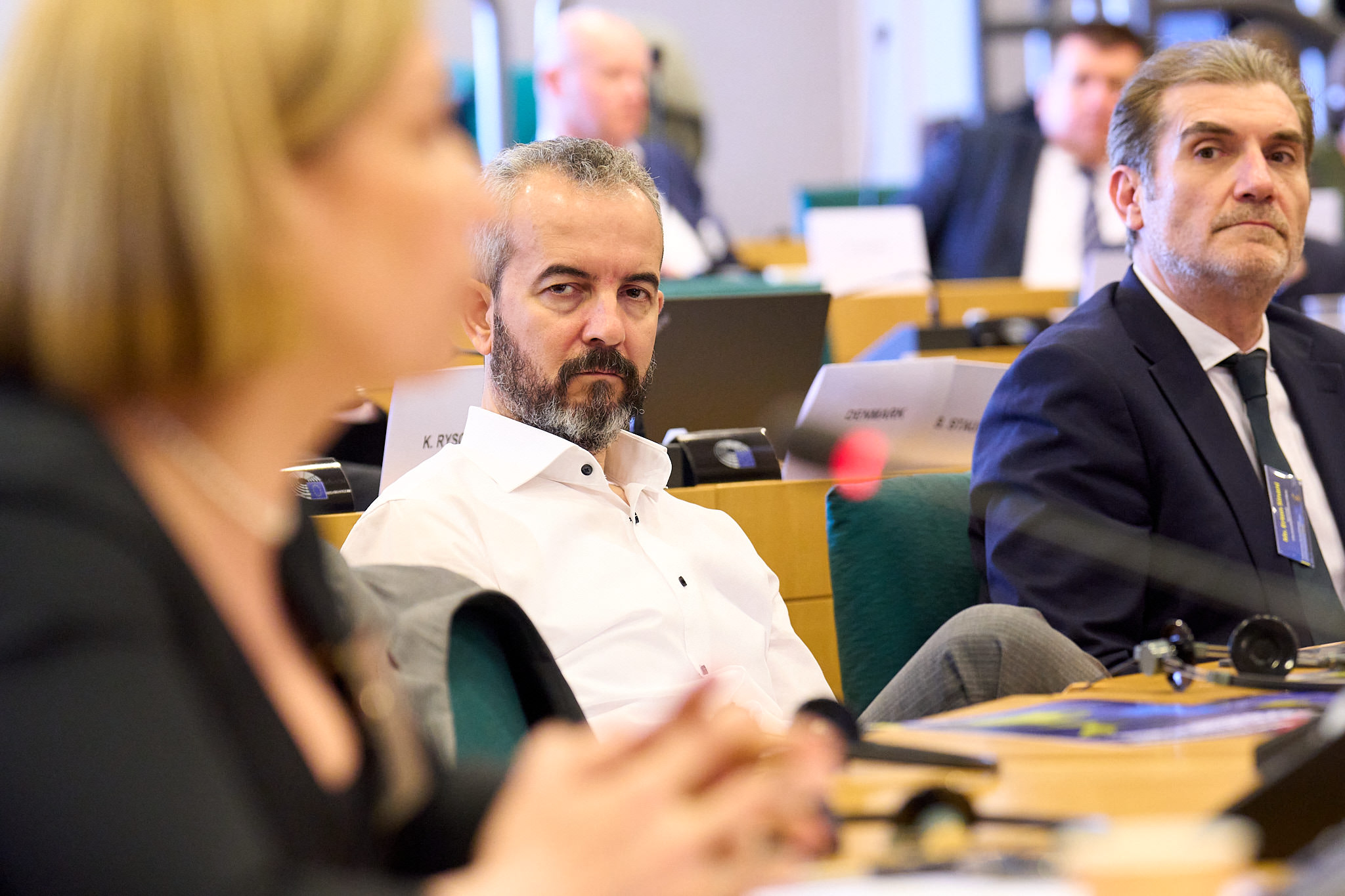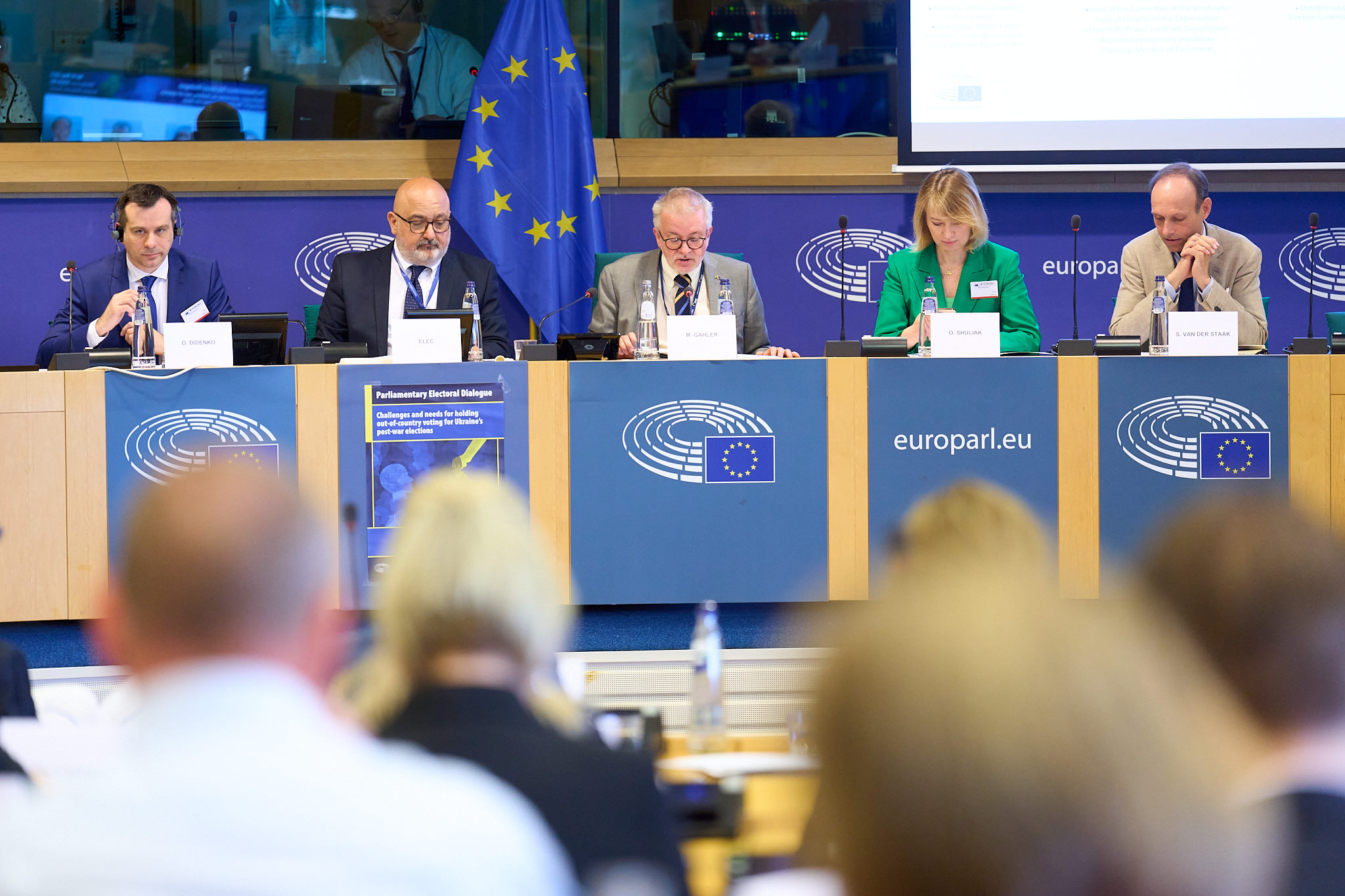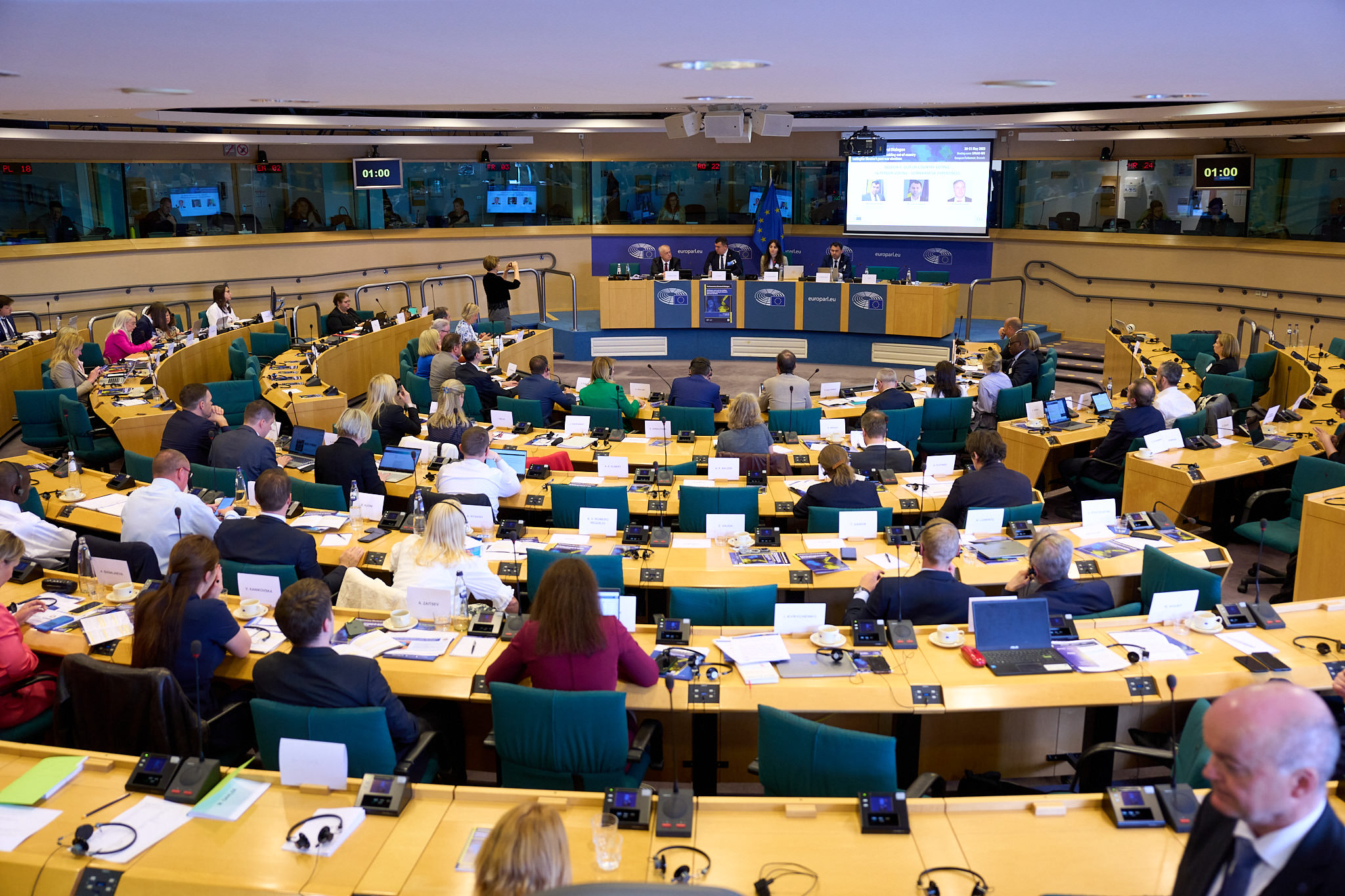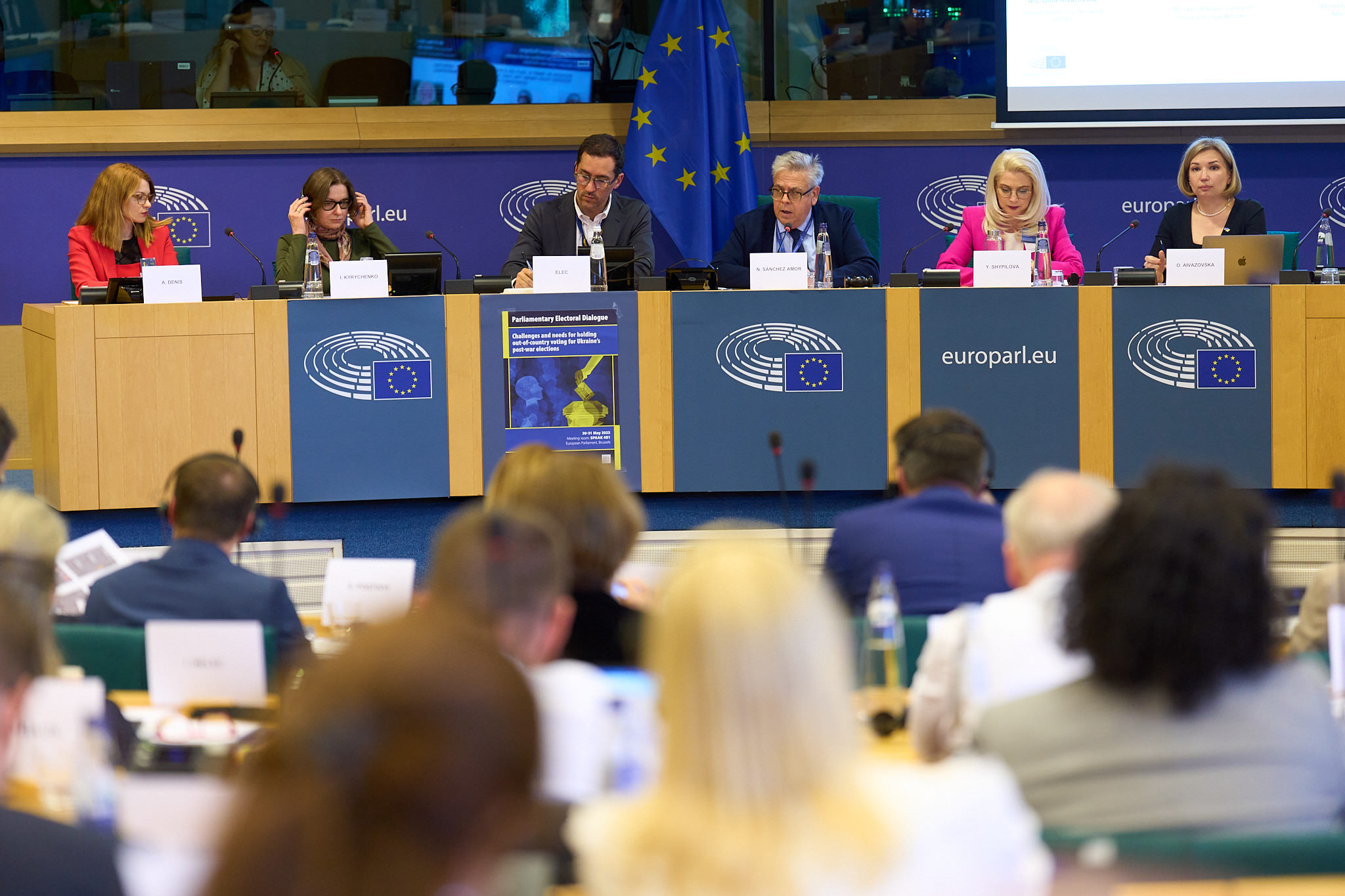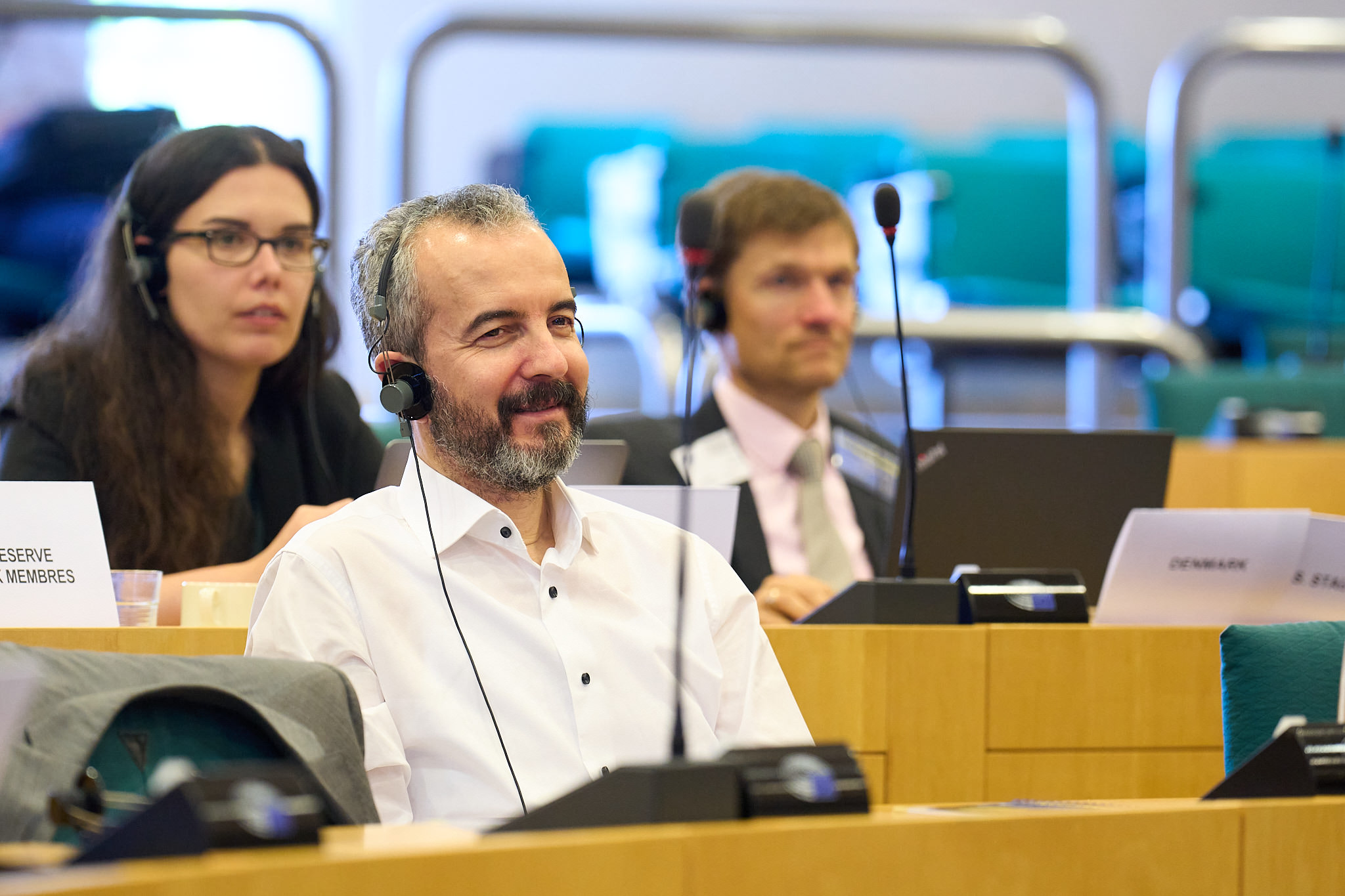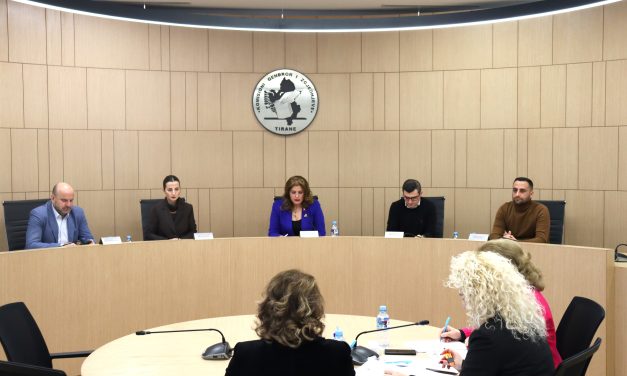The European Union, member states, and central election administration bodies should consider the possibilities of providing support to Ukraine to ensure that millions of displaced voters due to Russian aggression can vote in the first post-war elections, according to a dialogue among European lawmakers, election management bodies, and international experts.
This was the main recommendation of the Parliamentary Electoral Dialogue organized by the European Parliament and the International Institute for Democracy and Electoral Assistance (International IDEA) in Brussels on May 30-31, 2023, on the “Challenges and Needs for Holding Out-of-Country Voting for Ukraine’s Post-War Elections.” The conference was attended by the State Election Commissioner of Albania, Ilirjan Celibashi.
In addition to Albania’s State Election Commission, electoral management bodies from Austria, Belgium, Bosnia and Herzegovina, Croatia, the Czech Republic, Denmark, Estonia, Finland, Germany, Hungary, Latvia, Lithuania, Moldova, Poland, Romania, Spain, Sweden, Switzerland, the United Kingdom, and the United States participated in the dialogue.
The dialogue brought together chairs and representatives of the Central Electoral Commission of Ukraine, the Parliament and Ministry of Foreign Affairs of Ukraine, civil society, electoral management bodies from around the world, European Union institutions, and international electoral assistance providers.
“Holding voting abroad is the most difficult organisational problem among all the daunting challenges of post-war elections that await Ukraine after our victory,” said Mr Oleh Didenko, Chair of the Central Electoral Commission of Ukraine. “Ensuring the electoral rights of our citizens abroad requires not only significant efforts of Ukraine’s state authorities but also the involvement of our international partners, as well as the assistance of foreign governments, particularly in those countries where a large number of our voters will reside at the time of future elections”.
Regular parliamentary elections are due in autumn 2023, presidential elections in the spring of 2024, and local elections in autumn 2025, according to Ukraine’s constitution.
But elections cannot take place while martial law is effective. Despite the war, Ukrainian authorities have begun to seek a workable model for conducting out-of-country voting. As they will take place outside of Ukraine’s jurisdiction and will serve a large number of Ukrainian citizens displaced by the war, they will need operational support from host country governments and international partners.
More than 5 million Ukrainian refugees—90 percent of them women and children—have fled to neighbouring countries such as Poland, Germany, the Czech Republic as well as Hungary, the Republic of Moldova, Romania, Slovakia, the United Kingdom, and other European countries, according to the UN Refugee Agency.
“Out of this Parliamentary Electoral Dialogue emerges our appeal to the international community to support Ukraine’s democratic institutions. It is imperative to provide and electoral instrument for out-of-country elections to enable the millions of Ukrainian voters who became refugees abroad to exercise their right to vote” – noted Mr David McAllister, Chair, Committee on Foreign Affairs of the European Parliament.
The participants of the Dialogue recognized the extraordinary challenges of arranging out-of-country voting for millions of Ukrainian refugees, including legal, organizational, and security aspects, and expressed their readiness to support Ukraine in identifying the most feasible model.
“Millions of votes of these individuals will be critical for ensuring that Ukraine’s post-war elections reflect a truly popular result and that it provides a broadly-based mandate to the government to lead Ukraine to its successful reconstruction,” said Mr Sam van der Staak, Director for Europe at International IDEA. “This dialogue, gathering electoral and other state authorities from across Europe shows an unwavering commitment of the international community to help Ukraine overcome this challenge for its post-war elections”.
